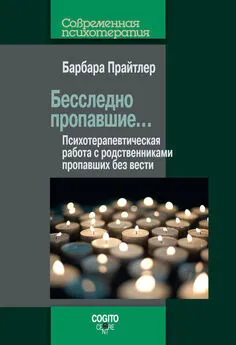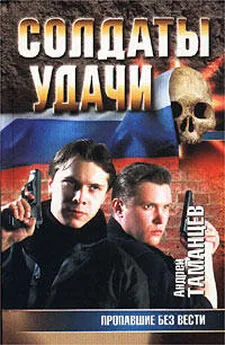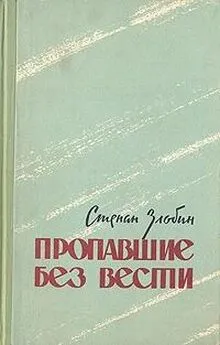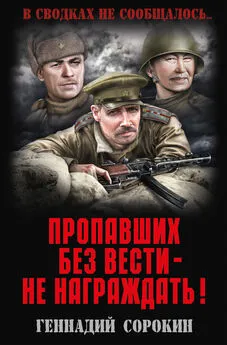Барбара Прайтлер - Бесследно пропавшие… Психотерапевтическая работа с родственниками пропавших без вести
- Название:Бесследно пропавшие… Психотерапевтическая работа с родственниками пропавших без вести
- Автор:
- Жанр:
- Издательство:Литагент «Когито-Центр»881f530e-013a-102c-99a2-0288a49f2f10
- Год:2015
- Город:Москва
- ISBN:978-5-89353-452-8, 978-3-89806-928-1
- Рейтинг:
- Избранное:Добавить в избранное
-
Отзывы:
-
Ваша оценка:
Барбара Прайтлер - Бесследно пропавшие… Психотерапевтическая работа с родственниками пропавших без вести краткое содержание
В книге обсуждается целый спектр проблем, касающихся процесса скорби и преодоления травмы у людей, чьи родственники пропали без вести – стали жертвами «насильственного исчезновения» в результате войн, обострения политической обстановки или же пропали вследствие стихийного бедствия. Изложены теоретические основы этой новой области исследования и дан исторический обзор событий ХХ века, в которых феномен насильственных исчезновений проявился с особой остротой. Изложен многолетний практический опыт психотерапии родственников пропавших без вести в различных сеттингах, включая работу в кризисных точках (войны, теракты, природные катастрофы). Особое внимание уделяется коллективным стратегиям преодоления травматических переживаний при бесследном исчезновении близких людей и вопросам самопомощи и психогигиены профессионалов, оказывающих им психологическую помощь.
Бесследно пропавшие… Психотерапевтическая работа с родственниками пропавших без вести - читать онлайн бесплатно ознакомительный отрывок
Интервал:
Закладка:
Nadia C. S. (1991). The Last Word: Women, Death and Divination in Inner Mani. Chicago: University of Chicago Press.
Nash J. R. (1978). Among the Missing. An Anecdotal History of Missing Persons From 1800 to the Present. N. Y.: Simon and Schuster.
Neumann Y. (1998). On the intergenerational Experience – A short-term Intervention with a Holocaust Sur vivor as Part of a Lengthy Course of Therapy // Israel Journal of Psychiatry, 35 (1), 56–67.
Nicoletti E. (1988). Some Reflexions on Clinical work with Relatives of Missing people. A Particular Elaboration of Loss // Kordon D. et al. (Eds). From Psychological effects of Political Repression. Buenos Aires: Sudamerikana/Planeta, 57–63.
Niederland W. (1968). Clinical Observations on the «Survivor Syndrome» // International Journal of Psycho-Analysis 49, 313–315.
Österreichisches Rotes Kreuz (2012). Rotes Kreuz: Weltweit zwei Millionen Verschwundene. http://www.roteskreuz.at/nocache/print/berichten/news/datum/2012/08/27/rotes-kreuz-welt-weit-zwei-millionen-verschwundene-22/ (accessed on 6.9.2012)
Ondaatje M. (2011). Anil's Ghost. London: Bloomsbury.
Onnasch K., Gast U. (2011). Trauern mit Leib und Seele. Orientierung bei schmerzlichen Verlusten. Stuttgart: Klett-Cotta.
Ottomeyer K., Peltzer K. (2002). Überleben am Abgrund. Psychotrauma und Menschenrechte. Klagenfurt: Drava.
Ottomeyer K. (2011). Die Behandlung der Opfer. Über unseren Umgang mit dem Trauma der Flüchtlinge und verfolgten. Stuttgart: Klett-Cotta.
PAHO (2005). A Disaster Myth that just won't die – Mass burials and the dignity of disaster victims. http://new.paho.org/disasters/newsletter/index.php?option=com_content&view=article&id=306%3Aa-disaster-myth-that-just-wont-die-mass-burials-and-the-dignity-of-disaster-victims&catid=153%3Aissue-98-jan
Payne M. (1995). Understanding «going missing»: Issues for social work and social services // British Journal of Social Work, 3, 333–348.
Pearlman L. A., Saakvitne K. W. (1995). Trauma and the Therapist. N. Y.: Norton.
Perera, S. (1999). Stories of Survivors. Socio-Political Contexts of Female Headed Households in Post-Terror Southern Sri Lanka. Colombo: Vikas Publishing House.
Preitler B. (1998/99). Der/die Dritte im Bunde. Psychotherapie mit Folterüberlebenden unter Beteiligung von DolmetscherInnen. Wien: Hemayat Eigenverlag. S.19–29.
Preitler B. (2004a). Psychologische Betreuung von Flüchtlingen in Österreich // Mehta G. (Ed.). Die Praxis der Psychologie. Wien N. Y.: Springer, 361–372.
Preitler B. (2005). Zur psychotherapeutischen Arbeit mit Angehörigen von «verschwundenen» Personen. Dissertation an der Universität Klagenfurt.
Preitler B. (2006). Trauma Counselling Programm nach Krieg und Tsunami in Ampara (Sri Lanka) // Zentrum für Friedensforschung und Friedenspädagogik (Ed.). Jahrbuch Friedenskultu. r Klagenfurt: Drava, 69–75.
Preitler B. (2009). «Sharing the Rotten Rice». Trauma counseling in Sri Lanka after war and Tsunami // Rieck M. (Ed.). Social interactions after massive traumatization. Was the Holocaust survivors' encounter with the post-war society conductive for generating private and collective memories? Berlin: Regner, 63–77.
Preitler B., Ottomeyer K., Spitzer H. (2010) (Eds). Look I am a Foreigner. Interkulturelle Begegnung und psycho-soziale Praxis auf fünf Kontinenten. Klagenfurt: Drava.
Preitler B. (2012). When Disaster Strikes in Time of War: Traditional Healing and Psychosocial Training Help Divided Communities Mourn Together // International Journal of Applied Psychoanalytic Studies 9 (3). 233–248.
Prigerson H. et. al. (1997a). Traumatic Grief as a Risk Factor for Mental and Physical morbidity // Am. J. Psychiatry 154: 5; 616–623.
Prigerson H. et. al. (1997b). Traumatic Grief: A Case of Loss – Induced Trauma // Am. J. Psychiatry 154:7, 1003–1008.
Ramirez Castello N. (2010). Die Folgen der politischen Gewalt und der Versuch einer Bewältigung: Forschungsaufenthalt im peruanischen Andendorf Santiago de Lucanamarca // Ottomeyer K., Preitler B., Spitzer H. (2010) (Eds). Look I am a Foreigner. Interkulturelle Begegnung und psycho-soziale Praxis auf fünf Kontinenten. Klagenfurt: Drava, 30–49.
Ramphele M. (1997). Political Widowhood in South Africa: The Embodiment of Ambiguity // Kleinman A., Das V., Lock M. (Eds). Social Suffering. Berkely: University of California Press 99-118.
Rando T. A. (1992-93). The Increasing Prevalence of Complicated Mourning: The Onslaught is Just Beginning // Omega. 26 (1), 43–59.
Rando T. A. (1993). Treatment of Complicated Mourning. Ottawa: Research Press.
Rando T. A. (2003). Public Tragedy and Complicated Mourning. In: Lattanzi-Licht M., Doka K. J. (Eds). Coping with public tragedy. Living with grief. N. Y.: Brunner-Routledge, 263–274.
Reddemann L. (2004). Eine Reise von 1.000 Meilen beginnt mit dem ersten Schritt. Freiburg i. Br.: Herder.
Reddemann L. (2011). Psychodynamisch Imaginative Traumatherapie. PITT– Das Manual. Stuttgart: Klett-Cotta.
Rehberger R. (2004). Angst zu Trauern. Trauerabwehr in Bindungstheorie und psychotherapeutischer Praxis. Stuttgart: Pfeiffer bei Klett-Cotta.
Remmers S. (2009). Wie der Verlust des Ehepartners bewältigt wird: Eine Längsschnittstudie zur Erfassung des Trauerverlaufs innerhalb des ersten Jahres nach demTodesereignis. Dissertation an der Universität Koblenz-Landau. Göttingen: Cuvillier Verlag.
Reynolds M. (2000). «War Has No Rules for Russian Forces Fighting in Chechnya». The Los Angeles Times September 17 2000. http://articles.latimes.com/2000/sep/17/news/mn
Robins S. (2012). Constructing Meaning from Disappearance: Local Memorialisation of the Missing in Nepal. Paper submittet to ISA San Diego. Panel: In Search for Truth and Reconsiliation, 1.4.2012.
Rogers J., Spencer J., Uyangoda J. (1998). Sri Lanka. Political Violence and Ethnic Conflict // American Psychologist. July 771–777.
Рогинский А. Б. (2009). Доклад на конференции «История сталинизма». Цит. по: http://www.polit.ru/institutes/2008/12/11/memory.html
Roth J. (2010). Job. Dexter: Archipelago.
Rothschild. B. (2006). Help for the Helper. Self-Care Strategies for Managing Burnout and Stress. N. Y.: Norton.
Sabin M. et. al. (2003). Factors Associated With Poor Mental Health Among Guatemalan refugees Living in Mexico 20 Years After Civil Conflict. JAMA 290 (5), 635–642.
Salahu-Din, Sakinah N. (1996). A comparison of Coping Strategies of African American and Caucasian Widows // Omega. 33 (2), 103–120.
Sangster K. (1999). Truth Commissions: The Usefulness of Truth-Telling. Australian Journal of Human Rights. 136–158.
Scheffer D. J. (2002). Justice for Cambodia. New York Times, 21.12. 2002, 3.
Scherbakowa I. (2002). «Memorial» und «Opfer zweier Diktaturen.» «OST-WEST Europäische Perspektiven» (OWEP) 1/2002. 12–19.
Schindler R. (1996). Mourning and Bereavement among Jewish Religious Families: A – time for Reflection and Recovery // Omega, 33 (2), 121–129.
Schmidt-Häuer C. (2002). Eva in der Mördergrube. Eine Anthropologin aus Island gibt den namenlosen Opfern in den Massengräbern des Bosnienkriegs ihre Identität zuriick Die Zeit, 52, n. g.
Schreier H., Heyl M. (Eds) (1994). Die Gegenwart der Schoah. Zur Aktualität des Mordes an den europäischen Juden. Hamburg: Krämer.
Schrepfer-Proskurjakov A. (2004). Russlands Krieg in Tschetschenien. asyl aktuell, 3, 2–7
Sevensisterpost (2012). Mizo villagers bid adieu to 'missing' teenage couple. 20.8.2012, S. 4
Shapiro E. R. (1994). Grief as a Family Process. A Developmental Approach to Clinical Practice. N. Y.: The Guilford Press.
Sharma P. C. (n. g.). Report of the NHRC Committee on Missing Children. http://www.childlineindia.org.in/CP-CRDownloads/Missing%2°Child%20report%NHRC.pdf
Simpson J., Bennett J. (1985). The Disappeared and the Mothers of the Plaza. The Story of the 11 000 Argentino Who Vanished. N. Y.: St. Martin 's Press.
Sluzki C. (1990). Disappeared: Semantic and Somatic Effects of Political Repression in a Family Seeking Therapy. Family Process, 29, 131–144.
Sluzki C. (1994). Reclaiming Words, Reclaiming Worlds // Journal of Reviews and Commentary in Mental Health. 9 (2), 4–7.
Smith A. L. (1992). Die «vermißte» Million. Zum Schicksal deutscher Kriegsgefangener nach dem Zweiten Weltkrieg. Schriftreihe der Vierteljahresreihe für Zeitgeschichte. München: Oldenbourg.
Society for threatened peoples [Gesellschaft für Bedrohte Völker] (2004). Auch Jugendliche «verschwinden». www.gfbv.de/voelker/asien/lttememo.html
Солженицын А. И. (1973). Архипелаг Гулаг. Цит. по: http://lib.ru/PROZA/SOLZHENICYN/gulag.txt.
Somasundaram D., Jamunanantha C. S. (2002). Psychosocial Consequences of War. Northern Sri Lankan Experience // de Jong J. (Ed.). Trauma, War and Violence. Public Mental Health in Socio-Cultural Context. N. Y: Kluwer Academic/Plenum Publishers.
Somasunderan D., JamunananthaC. S. (2002). Psychosocial Consequences of War. Northern Sri Lankan Experience // DeJong J. (Ed.). Trauma, War and Violence. Public Mental Health in Socio-Cultural Context. N. Y: Kluwer Academic Plenum Publishers.
Spitz R. (1967). Vom Säugling zum Kleinkind. Stuttgart: Klett Cotta. Spolyar L. (n. g.). Die Grieving Process in MIA Wives // Hamilton I., Mccubbin et. al. (Eds). Family Separation and Reunion. Families of Prisoners of War and Servicemen Missing in Action. Washington, D. C.: U. S. Government Printing Office, 77–84.
Staub E. (1998). Breaking the Cycle of Genocidal Violence: Healing and Reconciliation // Harvey J. H. (Ed.). Perspectives on Loss. A sourcebook. Philadelphia: Brunner/Mazel.
Staub E. (2000). Genocide and Mass Killing: Origins, Prevention, Healing and Reconciliation // Political Psychology. 21, 367–382.
Staub E., Pearlman L. A. (2006) Advancing Healing and Reconcilation // Barbanel. L., Sternberg. R. J. (Eds). Psychological Interventions in Times of Crisis. N. Y.: Springer, 213–244.
Stroebe M. et. al. (1992). Broken hearts or broken bonds: Love and death in historical perspective // American Psychologist. V. 47, 1203–1212.
Stroebe M., Schut H, Stroebe W. (1998). Trauma and Grief: A Comparative Analysis // Harvey J. H. (Ed.). Perspectives on Loss. A Sourcebook., Philadelphia: Brunner/Mazel, 115–132.
Stroebe M., Schut H. (1999). The Dual Process Model of coping with bereavement: Rationale and description // Death Studies. 23, 197–224.
Stroebe M., Schut. H. (2010). The Dual Process Model of Coping with Beraeavement: A decade on // Omega. 61 (4). 273–289.
Summerfield, D. (1998). The Social Experience of War and Some Issues for the Humanitarian Field // Bracken J., Perry C. (Eds). Rethinking the Trauma of War. London-N. Y.: Free Association Books, 9-37.
Taylor D. (1997). Disappearing Acts. Durham, London: Duke University Press.
Thiruchandran S. (1999). The Other Victims of War. Emergence of Female Headed Households in Eastern Sri Lanka. Colombo: Vikas Publishing House.
Thornton S. W. (2000). Grief Transformed: the Mothers of the Plaza de Mayo // Omega. 41 (4), S. 279–289.
Thangavelu V. (1996). The Rape and Murder of Teen Aged Krishanti Kumaraswamy by Sinhalese Soldiers. http://nakeeran.tripod.com/KrishanthiA.htm
Towell L. (1994). House on Ninth Street. Dunvengan, Ontario: Cormorant Books.
Ung L. (2000). First they killed my father. N. Y.: Harper Collins.
United Nations Human Rights (n. g.). International Convention for the Protection of All Persons from Enforced Disappearance. http://www.ohchr.org/EN/HRBodies/CED/Pages/ConventionCED. aspx (accessed on 12.7.2013)
Читать дальшеИнтервал:
Закладка:






![Нина Хеймец - Перекресток пропавших без вести [сборник litres]](/books/1149374/nina-hejmec-perekrestok-propavshih-bez-vesti-sborn.webp)
